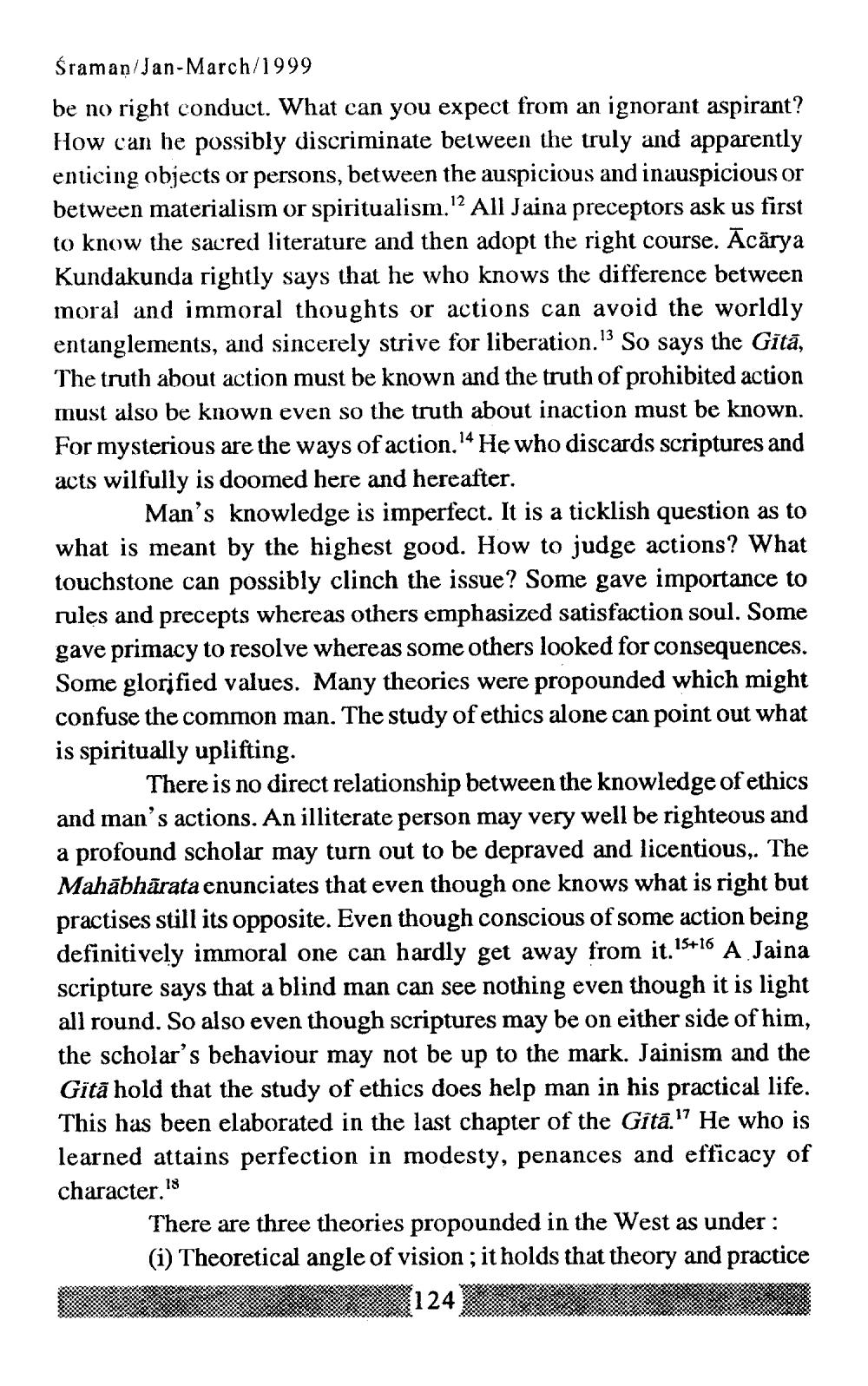________________
Śraman/Jan-March/1999
be no right conduct. What can you expect from an ignorant aspirant? How can he possibly discriminate between the truly and apparently enticing objects or persons, between the auspicious and inauspicious or between materialism or spiritualism.'? All Jaina preceptors ask us first to know the sacred literature and then adopt the right course. Ācārya Kundakunda rightly says that he who knows the difference between moral and immoral thoughts or actions can avoid the worldly entanglements, and sincerely strive for liberation.' So says the Gītā, The truth about action must be known and the truth of prohibited action must also be known even so the truth about inaction must be known. For mysterious are the ways of action.!4 He who discards scriptures and acts wilfully is doomed here and hereafter.
Man's knowledge is imperfect. It is a ticklish question as to what is meant by the highest good. How to judge actions? What touchstone can possibly clinch the issue? Some gave importance to rules and precepts whereas others emphasized satisfaction soul. Some gave primacy to resolve whereas some others looked for consequences Some glorified values. Many theories were propounded which might confuse the common man. The study of ethics alone can point out what is spiritually uplifting.
There is no direct relationship between the knowledge of ethics and man's actions. An illiterate person may very well be righteous and a profound scholar may turn out to be depraved and licentious,. The Mahābhārata enunciates that even though one knows what is right but practises still its opposite. Even though conscious of some action being definitively immoral one can hardly get away from it.15+16 A Jaina scripture says that a blind man can see nothing even though it is light all round. So also even though scriptures may be on either side of him, the scholar's behaviour may not be up to the mark. Jainism and the Gîtā hold that the study of ethics does help man in his practical life. This has been elaborated in the last chapter of the Gîtā." He who is learned attains perfection in modesty, penances and efficacy of character. 18
There are three theories propounded in the West as under : (i) Theoretical angle of vision; it holds that theory and practice
124




